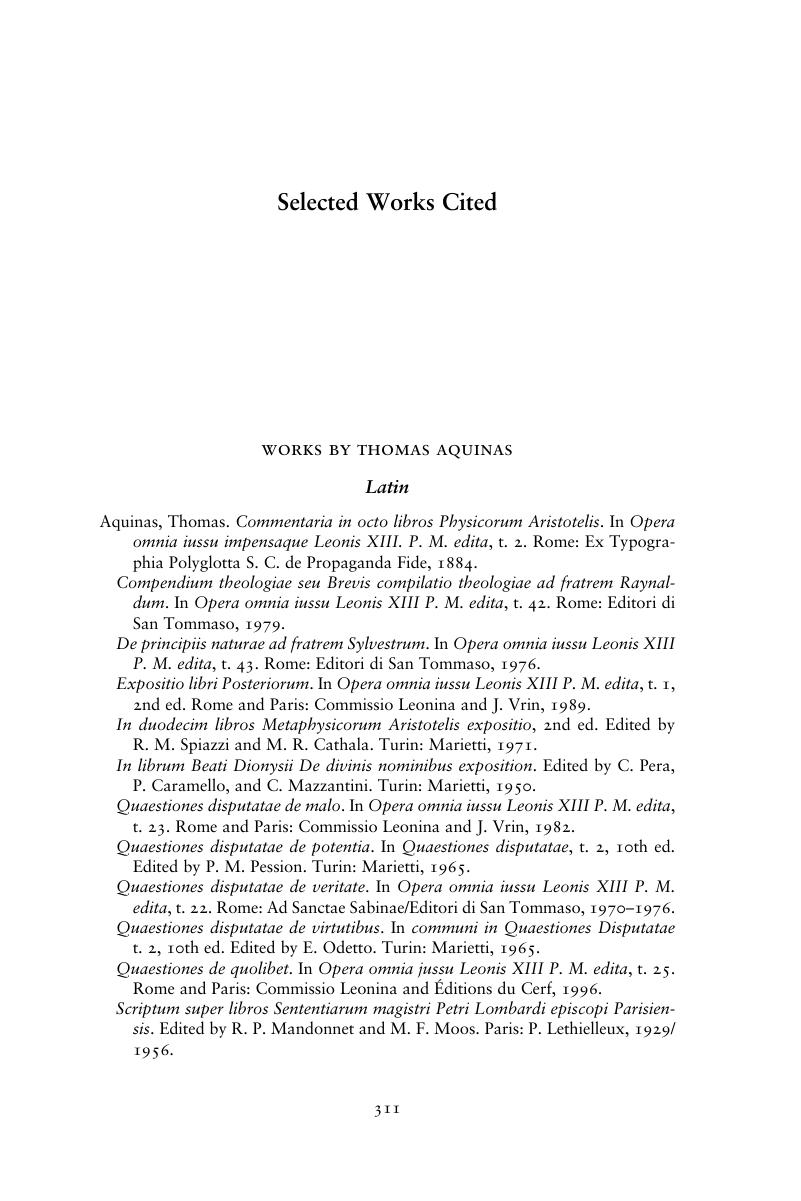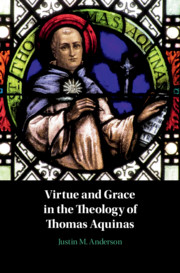Book contents
- Virtue and Grace in the Theology of Thomas Aquinas
- Virtue and Grace in the Theology of Thomas Aquinas
- Copyright page
- Epigraph
- Contents
- Acknowledgments
- Abbreviations of Aquinas’s Works
- Introduction
- Part I Virtue and the Developments in Grace
- Part II The Conditions of Virtue Simpliciter
- Part III The Conditions of Virtue Secundum Quid
- Part IV Confirmations and Conclusions
- Conclusion
- Selected Works Cited
- Index
- References
Selected Works Cited
Published online by Cambridge University Press: 18 September 2020
- Virtue and Grace in the Theology of Thomas Aquinas
- Virtue and Grace in the Theology of Thomas Aquinas
- Copyright page
- Epigraph
- Contents
- Acknowledgments
- Abbreviations of Aquinas’s Works
- Introduction
- Part I Virtue and the Developments in Grace
- Part II The Conditions of Virtue Simpliciter
- Part III The Conditions of Virtue Secundum Quid
- Part IV Confirmations and Conclusions
- Conclusion
- Selected Works Cited
- Index
- References
Summary

- Type
- Chapter
- Information
- Virtue and Grace in the Theology of Thomas Aquinas , pp. 311 - 323Publisher: Cambridge University PressPrint publication year: 2020

